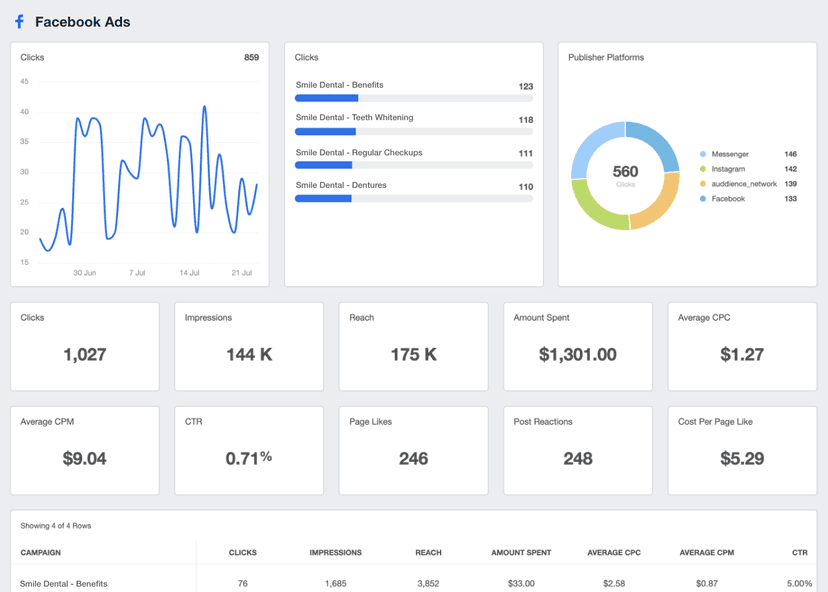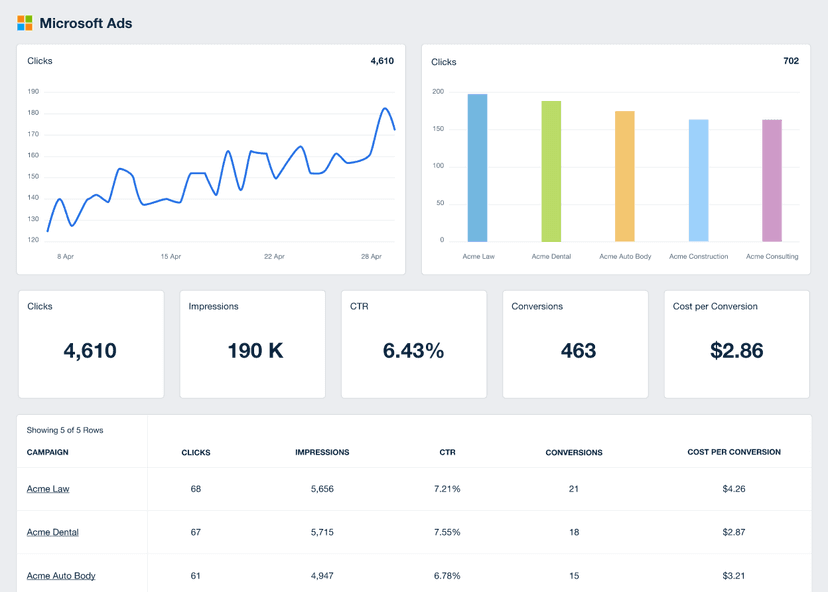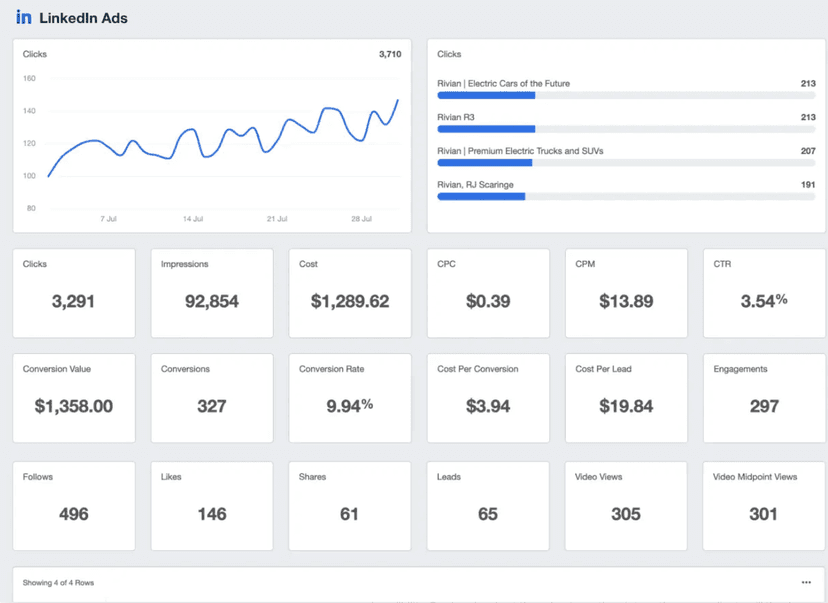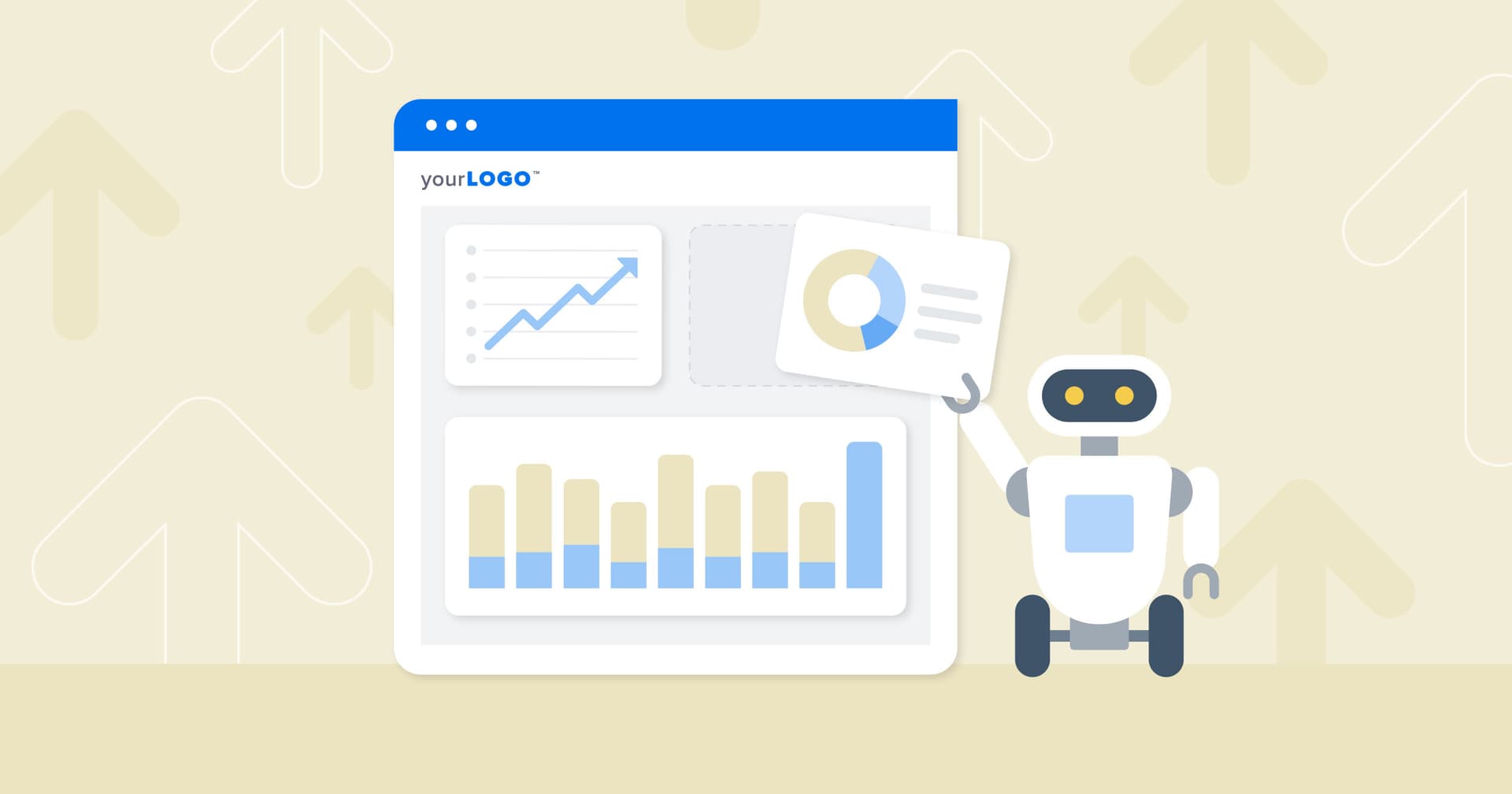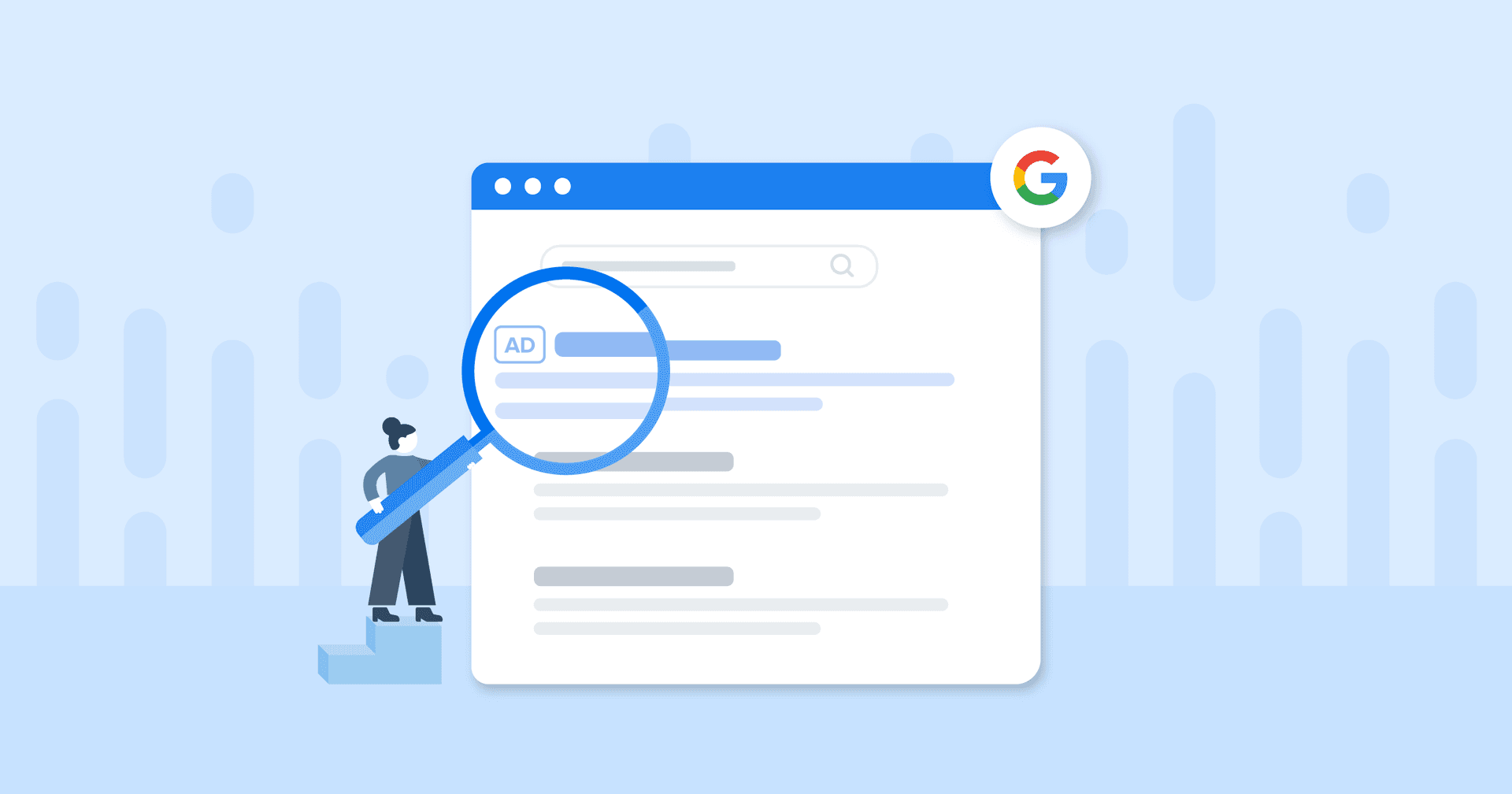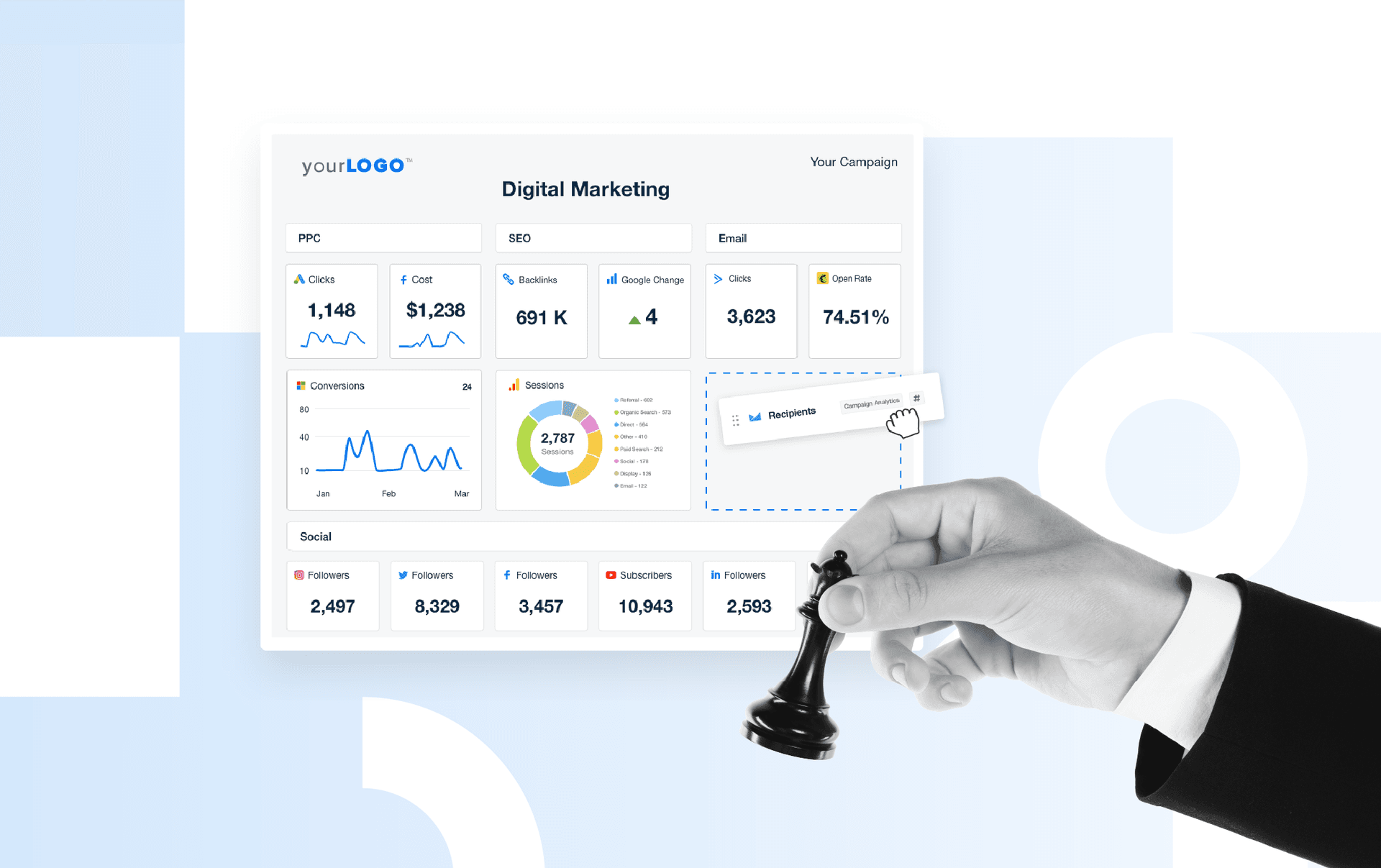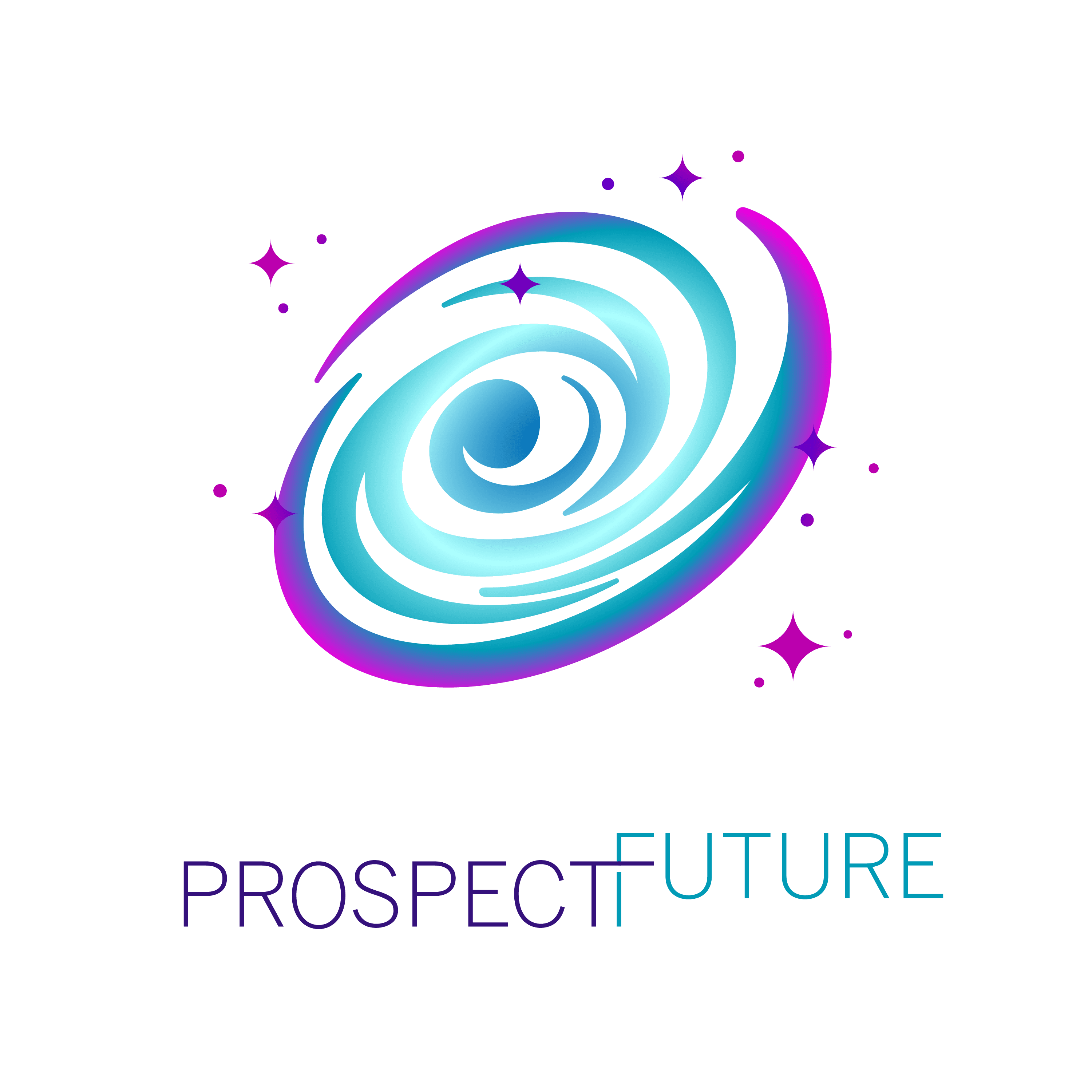Cost Per Conversion
Benchmarking
Compare effectiveness against industry standards and past campaigns.
Budget Focus
Shift funds to better-performing campaigns for a positive ROI.
Client Reports
Validate the ability to show continuous campaign improvement.
Improved Targeting
Zero in on the most responsive audience segments and times.
Why Cost Per Conversion Matters
Cost Per Conversion isn't a nicety; it's necessary. This metric directly informs advertisers about the financial efficiency of each marketing campaign. It pinpoints the average amount spent to achieve each successful conversion, presenting a straightforward view of total costs versus gains.
Understanding Cost Per Conversion delivers actionable insights into the investment required to acquire each new prospect or customer. It ensures that advertising costs yield a satisfactory conversion rate and helps fine-tune the resonance between the target audience and ad copy.
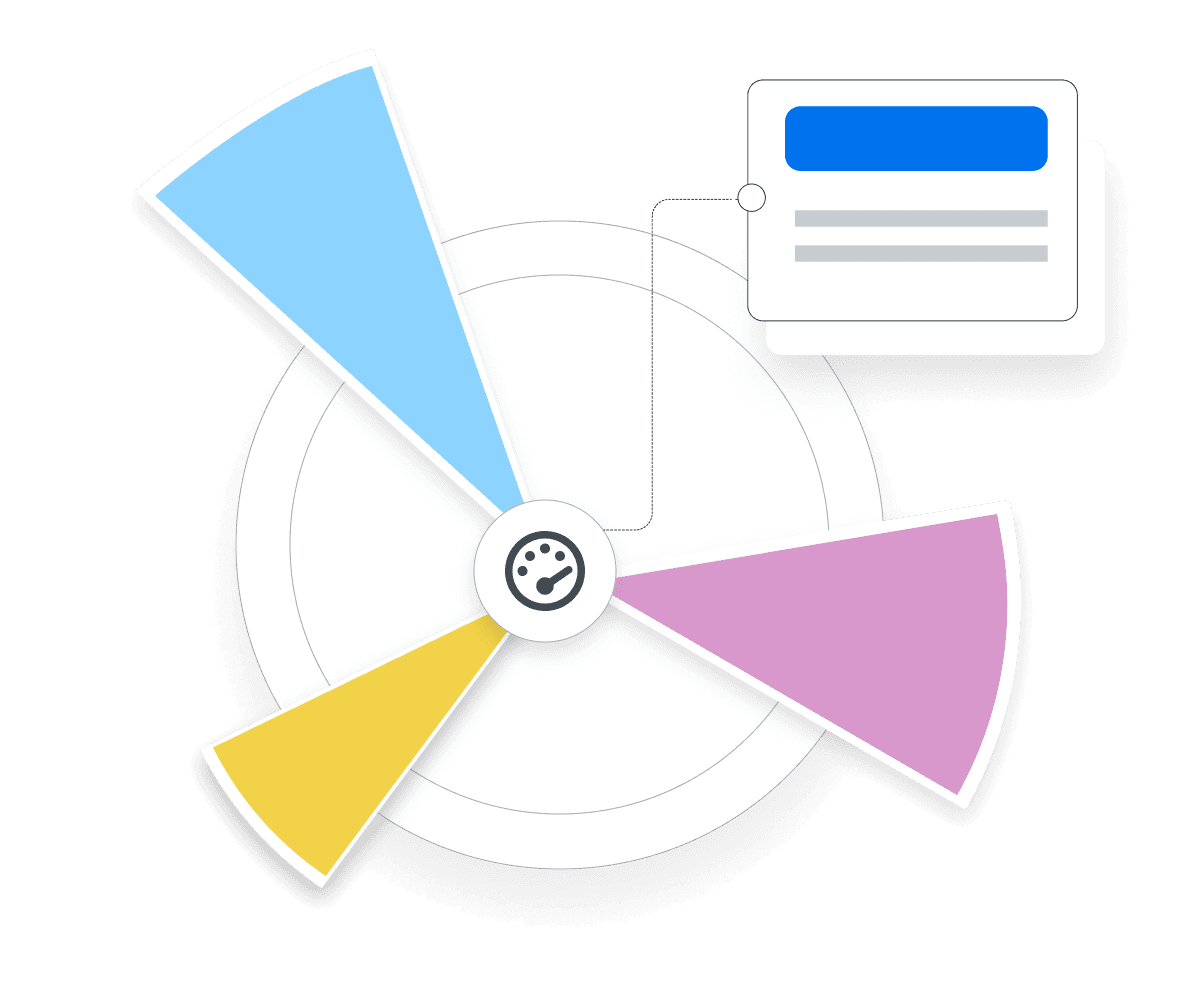
Stop Wasting Time on Manual Reports... Get Insights Faster With AgencyAnalytics
How Cost Per Conversion Relates to Other KPIs
Cost Per Conversion doesn't just shed light on the final conversion cost to acquire a lead or customers; it directly correlates with other significant KPIs. For instance, it's deeply entwined with metrics such as Cost Per Click (CPC) and Conversion Rates. A high Cost Per Conversion could indicate inefficiencies in campaign settings, prompting advertisers to scrutinize keyword relevance or ad placements.
This metric also provides context on conversion funnels and lead generation efforts. If the conversion rates are high, but the Cost Per Conversion is also soaring, it signals that the ad campaign is effective in attracting potential customers but costly in converting them into paying customers.
Conversely, a low Cost Per Conversion alongside vital lead generation stats offers an opportune moment for taking advantage of a well-oiled marketing machine.
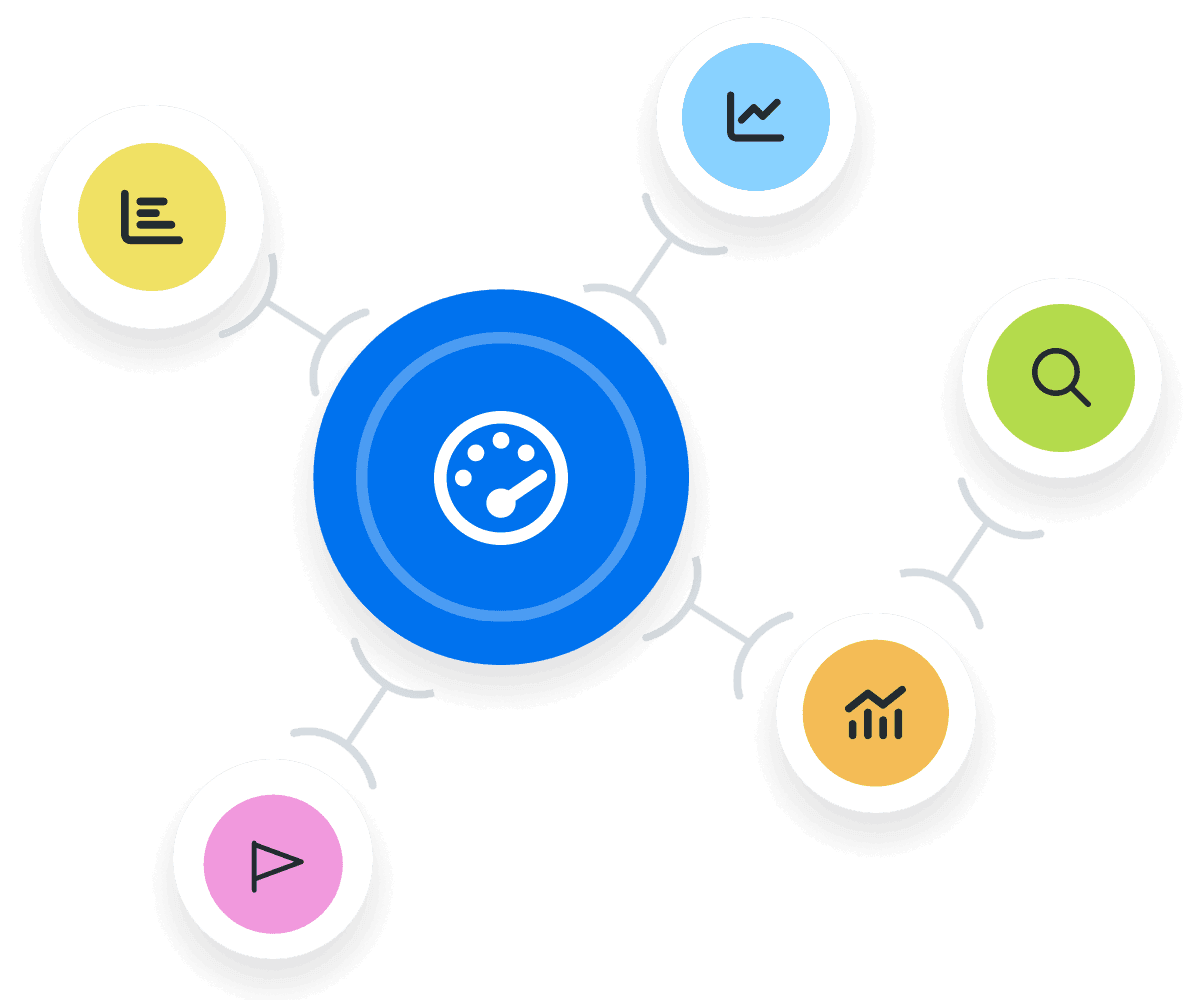
We typically look at CTR, Conversion rate, cost per conversion, and ROAS after a match-back process. We also take a look at the lifetime value of a customer to show the efficacy of long-term ROI. We compare these stats over time and chart out the progress using graphs. This also highlights our efforts in the continued optimization of campaigns.
How To Calculate Cost Per Conversion
Calculating Cost Per Conversion is easy but essential. Simply divide the total cost of the ad campaigns by the total number of successful conversions.
The average cost for each successful conversion provides a clear metric for campaign evaluation and future planning.
Cost Per Conversion Formula
What Is a Good Average Cost Per Conversion?
A good average Cost Per Conversion varies by industry but should be significantly lower than the customer's lifetime value. Marketers are on the right track if it costs less to get a new customer than they'll ultimately spend.
What Is a Bad Average Cost Per Conversion?
When the cost to acquire a new customer is near or above their lifetime value, that's a red flag—it's time to revisit the strategy and execute significant campaign optimization protocols.
How To Set Cost Per Conversion Benchmarks & Goals
Agencies often leverage past performance data to set their own Cost Per Conversion benchmarks. This involves examining the previous campaigns to see how Cost Per Conversion correlates with success rates or customer value and then setting future targets based on this analysis.
Back-Calculating Cost Per Conversion Goals
Another approach to setting benchmarks is to back-calculate the required cost per conversion to hit specific revenue targets within the fixed budget. Reverse-engineer the required Cost Per Conversion involves dividing the total desired revenue by the number of conversions needed to meet that revenue goal. Dividing the advertising budget by the number of conversions gives a target for Cost Per Conversion.
Digging Deeper Into Cost Per Conversion Metrics
Going beyond the average, break down Cost Per Conversion by various parameters such as by channel, period, or customer segment. For example, analyzing Cost Per Conversion monthly or weekly reveals patterns that influence its performance. Similarly, evaluating it across different marketing channels pinpoints where resources should be allocated. This offers a more nuanced understanding of how this KPI performs, helping fine-tune ongoing and future campaigns.
Why Cost Per Conversion Matters to Clients
Cost Per Conversion provides immediate insight into how effectively an investment converts into desired actions, such as sales or sign-ups. It's a bridge between advertising spend and tangible outcomes.
A lower Cost Per Conversion often means a marketing campaign successfully transforms clicks into leads or customers without breaking the bank. It provides a snapshot of campaign efficiency in absolute monetary terms, making it easier to justify marketing budgets to clients and internal stakeholders.

Why Cost Per Conversion Matters to Agencies
From an agency standpoint, it’s a performance indicator and client retention tool. Effectively managing this metric boosts the agency's reputation for budgetary prowess and becomes a focal point in performance discussions.
Consistently maintaining a low Cost Per Conversion signals campaign efficiency, strategic intelligence, and budgetary control. Such mastery helps retain accounts and facilitates constructive dialogue around budget changes and campaign expansion.
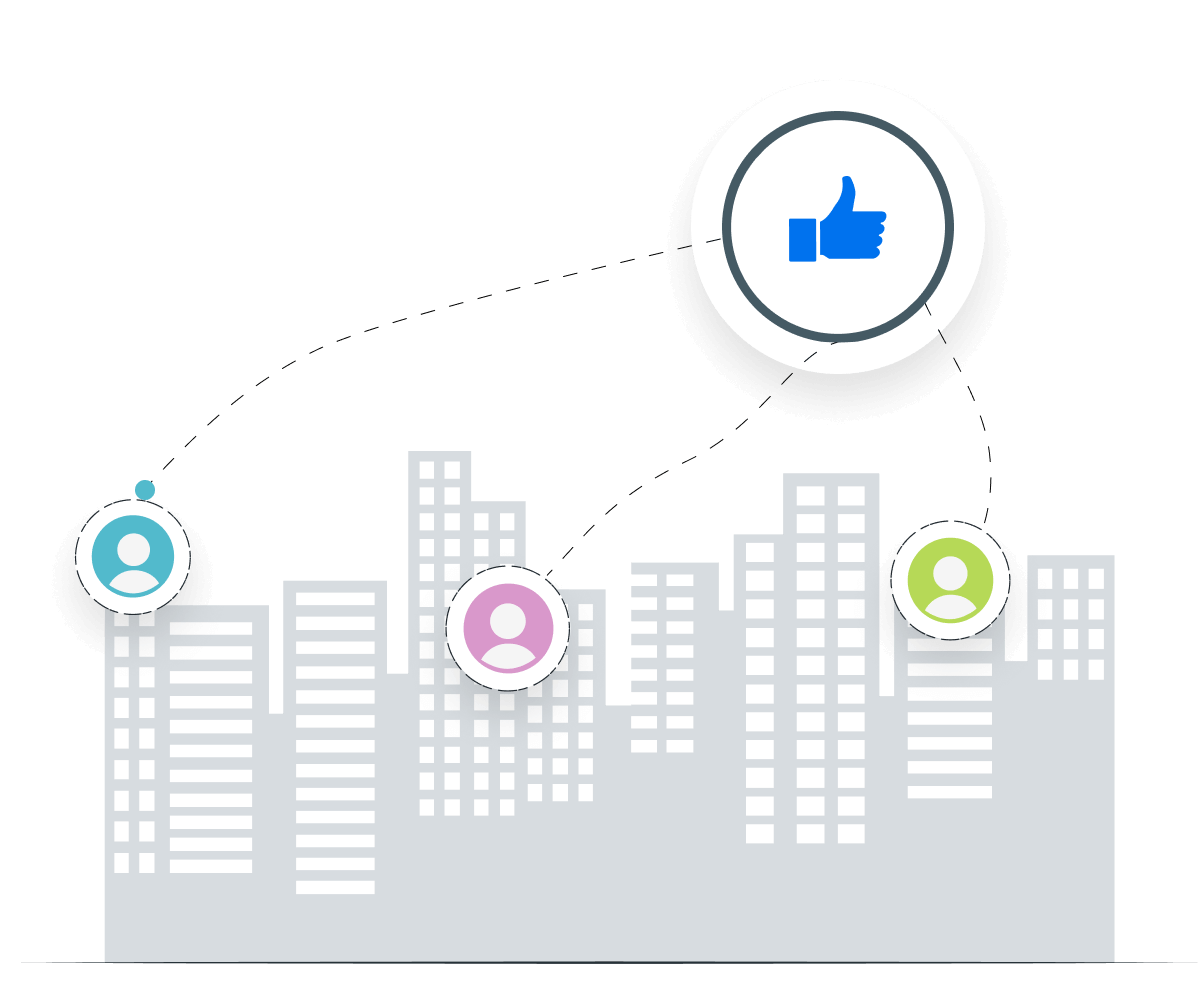
Win Back Billable Hours by Automating Your Client Reporting
How To Analyze and Report on Cost Per Conversion
A deep analysis of Cost Per Conversion sets the groundwork for optimizing online advertising initiatives.
Review Channel Effectiveness
Evaluate Cost Per Conversion across online advertising channels like social, search, video, and display. Doing this identifies which platforms are driving conversions most cost-effectively. It aids in resource allocation, ensuring ads are placed where they generate the most value.
Gather Historical Insights
Examining this metric over time directly informs budget and timing decisions for advertising campaigns. Seasonal trends and external events often affect conversion costs, giving a precise figure on when to allocate money for maximum ROI.
Compare Campaigns
Analyzing Cost Per Conversion across various campaigns identifies which strategies offer the most conversions for the least spend. Invest more in campaigns that effectively convert the target audience, drive more leads and customers into the sales pipeline, and positively contribute to the campaign’s overall performance.
Visualize Impact
A picture is worth a thousand words, which couldn't be more true when reporting how much conversions cost. Using easy-to-understand visuals like charts, graphs, or trendlines, illustrates insights gained over time and across various campaigns, making the data digestible at a glance.
Contextualize the Metric
Focusing solely on Cost Per Conversion risks missing the bigger picture. This metric becomes meaningful when analyzed alongside critical metrics, such as customer purchasing behavior and lifetime value.
Aligning With Client Goals
Clients are mainly concerned with how Cost Per Conversion contributes to their bottom-line goals: service expansion, increasing purchases, or market penetration. Frame the metric in the context of these objectives. By doing this, marketers make the metric both accessible and actionable.
FAQs: Cost Per Conversion
Still got questions about Cost Per Conversion? Here’s some additional information to make things clearer.
Cost Per Conversion measures how much it costs to achieve one successful action within a campaign, like a sale or sign-up. It tracks the average spend required to generate a desired outcome, helping marketers assess the financial efficiency of their ad efforts.
Cost Per Conversion is calculated by dividing the total advertising spend by the number of successful conversions. It includes all media spend for the campaign, offering a clear view of what it takes financially to generate each result.
Understanding Cost Per Conversion reveals if campaigns are producing profitable results. It compares spend to performance, ensuring conversions justify the investment and showing whether the budget supports real business outcomes.
To lower Cost Per Conversion, focus on high-performing channels, refine audience targeting, optimize ad creatives, and continuously test campaign variables. Shifting budget to campaigns with better ROI is a proven tactic.
Google Ads Dashboard Example
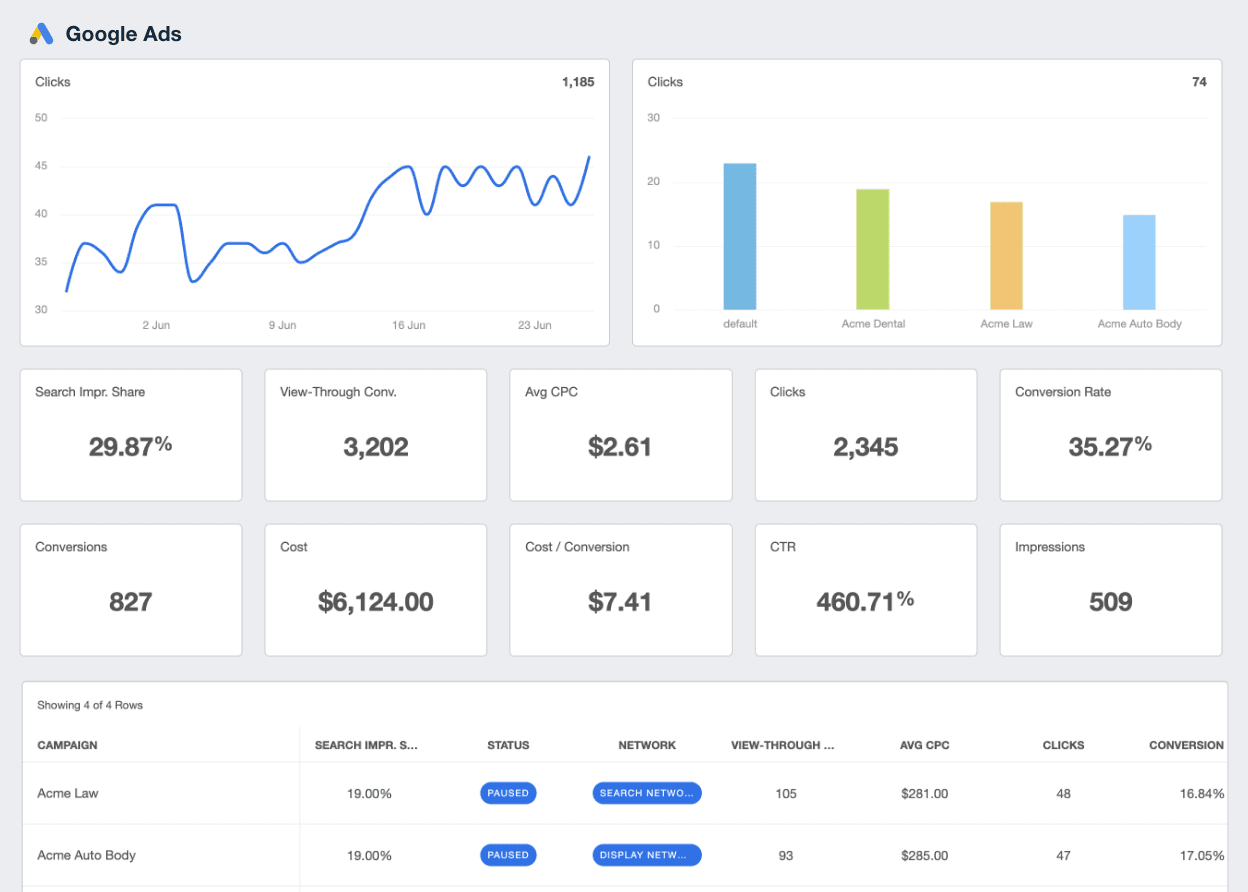
Related Integrations
How To Improve Cost Per Conversion
Improving Cost Per Conversion requires focusing on several factors influencing this critical KPI. Here are three actionable tips to get started.
Audit Keywords
Begin with a keyword audit to identify both high and low-converting keywords. Add low performers as negative keywords and allocate more budget to those driving conversions.
Optimize Landing Pages
A well-designed landing page is a conversion powerhouse. Make sure the landing page is aligned with the ad content to improve both user experience and conversion rates.
Segment Audience
Use dayparting, demographic, and geographic targeting within the PPC campaign to zero in on segments of the audience more likely to convert, thereby improving Cost Per Conversion.
Related Blog Posts
See how 7,000+ marketing agencies help clients win
Free 14-day trial. No credit card required.


